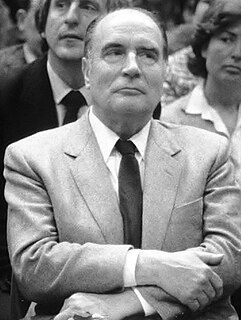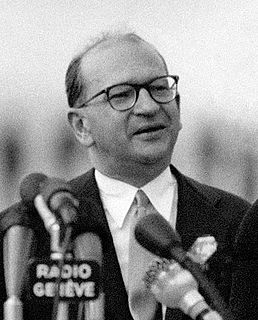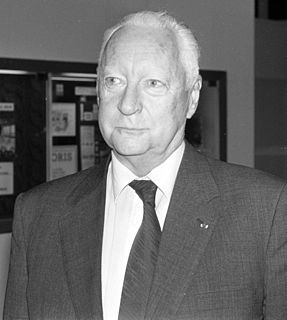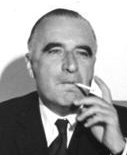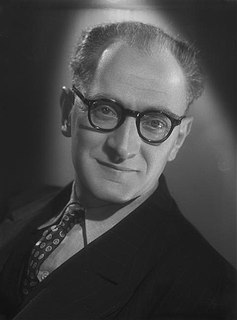| |||||||||||||||||||||||||||||||||||||||||||||||||||||||||||||||||||||||||||||
All 576 seats to the French National Assembly 289 seats were needed for a majority | |||||||||||||||||||||||||||||||||||||||||||||||||||||||||||||||||||||||||||||
| |||||||||||||||||||||||||||||||||||||||||||||||||||||||||||||||||||||||||||||
| |||||||||||||||||||||||||||||||||||||||||||||||||||||||||||||||||||||||||||||
| This article is part of a series on the |
| Politics of France |
|---|
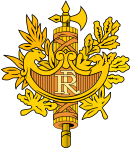 |
Related topics |
| France portal |
The French legislative elections took place on 23 and 30 November 1958 to elect the first National Assembly of the French Fifth Republic. [1]

The Fifth Republic, France's current republican system of government, was established by Charles de Gaulle under the Constitution of the Fifth Republic on 4 October 1958. The Fifth Republic emerged from the collapse of the Fourth Republic, replacing the former parliamentary republic with a semi-presidential, or dual-executive, system that split powers between a Prime Minister as head of government and a President as head of state. De Gaulle, who was the first French President elected under the Fifth Republic in December 1958, believed in a strong head of state, which he described as embodying l'esprit de la nation.
Contents
Since 1954, the French Fourth Republic had been mired in the Algerian War. [2] In May 1958, Pierre Pflimlin, a Christian-Democrat, became Prime Minister. [3] He was known to be in favour of a negotiated settlement with the Algerian nationalists. [4] On 13 May riots broke out in Algiers, with the complicity of the army. [5] A rebel government seized power in Algiers in order to defend "French Algeria". The next day, General Massu demanded the return to power of General Charles de Gaulle. [6]

The French Fourth Republic was the republican government of France between 1946 and 1958, governed by the fourth republican constitution. It was in many ways a revival of the Third Republic that was in place from 1870 during the Franco-Prussian War to 1940 during World War II, and suffered many of the same problems. France adopted the constitution of the Fourth Republic on 13 October 1946.
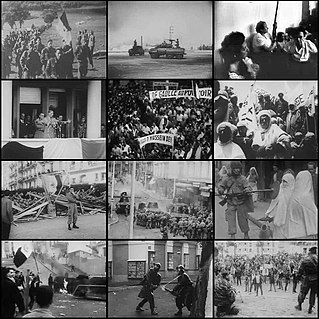
The Algerian War, also known as the Algerian War of Independence or the Algerian Revolution was fought between France and the Algerian National Liberation Front from 1954 to 1962, which led to Algeria gaining its independence from France. An important decolonization war, it was a complex conflict characterized by guerrilla warfare, maquis fighting, and the use of torture. The conflict also became a civil war between the different communities and within the communities. The war took place mainly on the territory of Algeria, with repercussions in metropolitan France.

Pierre Eugène Jean Pflimlin was a French Christian democratic politician who served as the Prime Minister of the Fourth Republic for a few weeks in 1958, before being replaced by Charles de Gaulle during the crisis of that year.
The rebellious generals took control of Corsica threatening to conduct an assault on Paris, involving paratroopers and armoured forces based at Rambouillet. [6] In Paris, the political leaders were trying to find a compromise. [7] On 1 June De Gaulle replaced Pflimlin to lead a government of national unity and nominated as Ministers of State (Vice-Prime Ministers) Pierre Pflimlin (Popular Republican Movement, MRP), Guy Mollet (French Section of the Workers' International (SFIO), Louis Jacquinot (National Center of Independents and Peasants, CNIP) and Félix Houphouët-Boigny. [8] He obtained the right to develop a new Constitution. [9] Only the Communists and some center-left politicians such as Pierre Mendès-France and François Mitterrand, opposed this "coup against the Republic". [7] [10]

Corsica is an island in the Mediterranean Sea and one of the 18 regions of France. It is located southeast of the French mainland and west of the Italian Peninsula, with the nearest land mass being the Italian island of Sardinia to the immediate south. A single chain of mountains makes up two-thirds of the island.

A paratrooper is a military parachutist—someone trained to parachute into an operation, and usually functioning as part of an airborne force. Military parachutists (troops) and parachutes were first used on a large scale during World War II for troop distribution and transportation. Paratroopers are often used in surprise attacks, to seize strategic objectives such as airfields or bridges.

Rambouillet is a commune in the Yvelines department in the Île-de-France in north-central France. It is located on the outskirts of Paris, 44.3 km (27.5 mi) southwest from the centre. Rambouillet is a sub-prefecture of the department.
On 28 September the new Constitution was approved by 79.25% of voters. The Fifth Republic was born. The two-round system was re-established for the legislative elections. [11] The Gaullists created the Union for the New Republic which became the largest parliamentary group. Their opponents were crushed. The division in the Left between the supporters and the opponents to the Fifth Republic explained, in due to this ballot system which encourages the alliances, the small number of left-wing MPs. [12]

The two-round system is a voting method used to elect a single winner, where the voter casts a single vote for their chosen candidate. However, if no candidate receives the required number of votes, then those candidates having less than a certain proportion of the votes, or all but the two candidates receiving the most votes, are eliminated, and a second round of voting is held.

The Union for the New Republic, was a French political party founded on 1 October 1958 that supported Prime Minister Charles de Gaulle in the 1958 elections.
On 21 December de Gaulle was elected President of France by an electoral college. [13] His Justice Minister Michel Debré became Prime Minister. [14] The pro-Fifth Republic center-left parties (SFIO and Radical Party) left the presidential majority. [15] [1] This established the first gaullist centre-right government.

An electoral college is a set of electors who are selected to elect a candidate to a particular office. Often these represent different organizations, political parties, or entities, with each organization, political party or entity represented by a particular number of electors or with votes weighted in a particular way. The system can ignore the wishes of a general membership.

Michel Jean-Pierre Debré was the first Prime Minister of the French Fifth Republic. He is considered the "father" of the current Constitution of France. He served under President Charles de Gaulle from 1959 to 1962. In terms of political personality, he was intense and immovable, with a tendency to rhetorical extremism.




